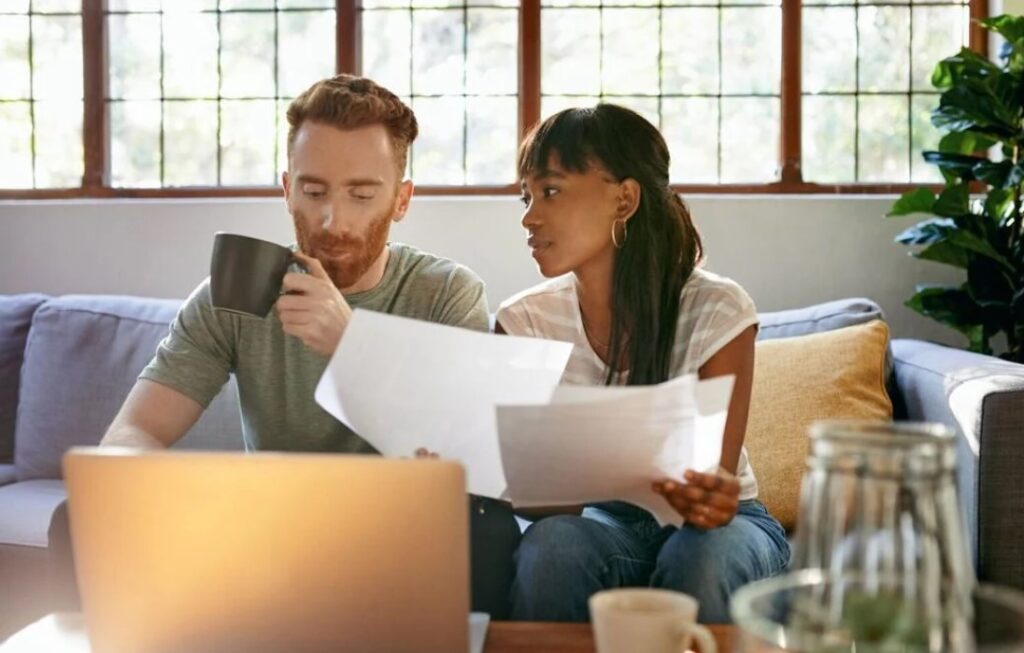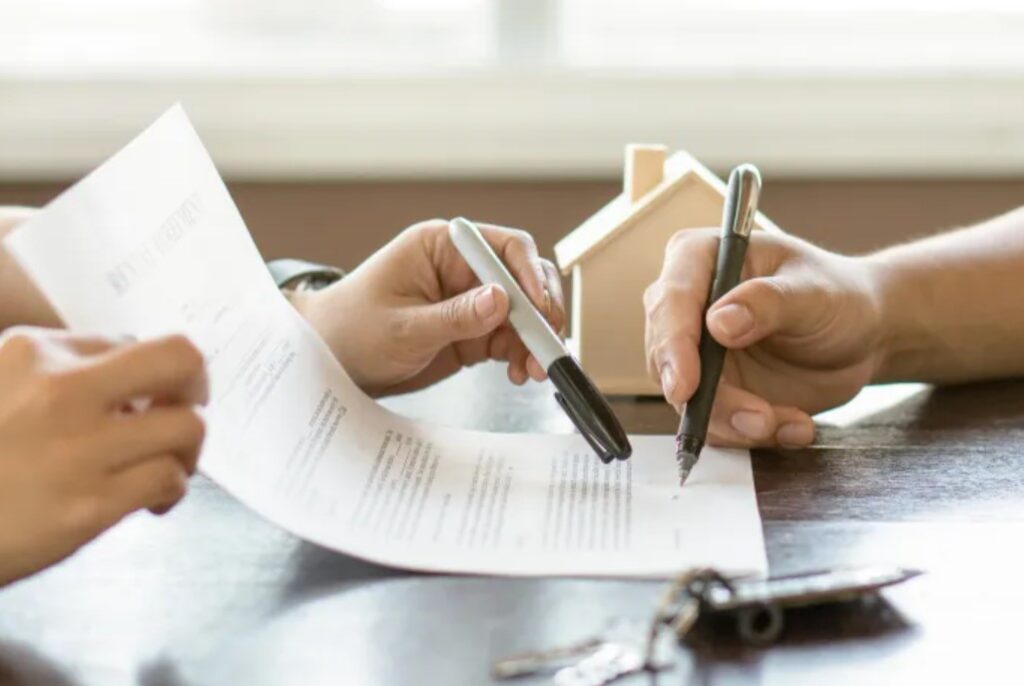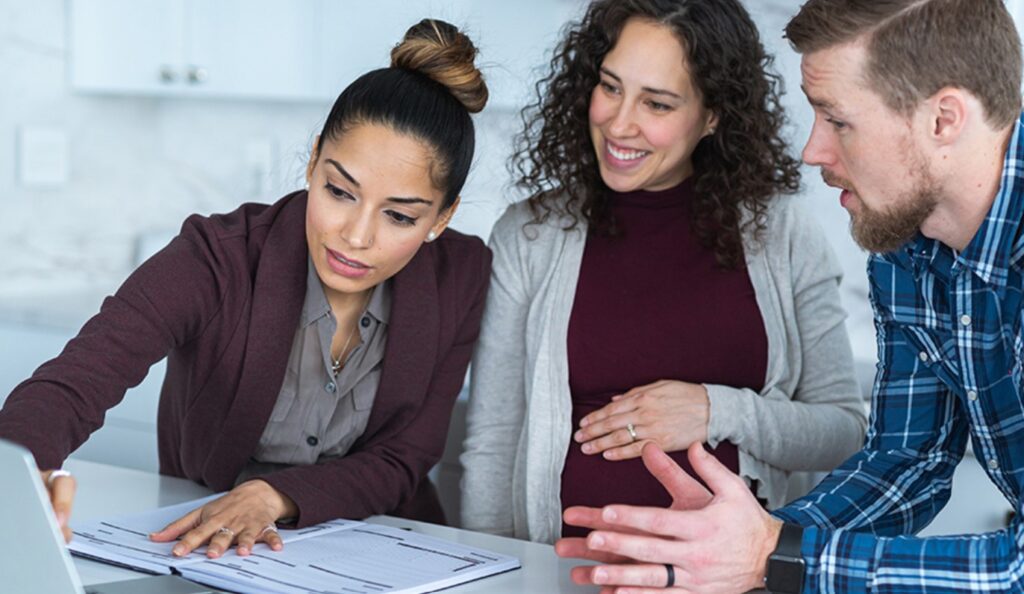Navigating the journey of acquiring a mortgage can be complex, yet the question remains: Is It Easier To Get A Mortgage The Second Time? The answer is nuanced, as it largely depends on one’s financial standing and the lessons learned from the first experience. With a better credit score, potential equity from a previous home, and knowledge of the process, securing a second mortgage may indeed come with fewer hurdles.
Key Takeaways
- Improved credit scores and savings can make conventional loans more accessible the second time.
- FHA loans are not just for first-time buyers and can be an option again.
- VA loans offer benefits for eligible veterans and service members, with no limit on usage.
- Second-time home buyer programs and grants exist and can aid in the process.
- Home equity from a first home can significantly impact the down payment for the next.
- Technological advancements have streamlined the home searching and buying process.
Is It Easier To Get A Mortgage The Second Time?
Yes, it can be easier to get a mortgage the second time around if you have maintained a good credit score, have a strong financial history and have built up equity in your first home. These factors can contribute to potentially better loan conditions and terms. However, the ease also depends on current market conditions, your debt-to-income ratio, and changes in your financial situation since the first mortgage.

Financial Evolution And Loan Options
Since your first home purchase, your financial landscape has likely transformed. This evolution opens doors to various loan options that may align better with your current situation. For instance, conventional loans become more attainable with an improved credit score and savings, offering low down payment solutions and affordable financing.

Conventional Loans: A Second Chance
For many, the passage of time allows for financial growth. This growth can translate into a stronger credit score and a more substantial down payment, making conventional loans a potentially ideal fit for the second-time buyer.
FHA Loans: Not Just For First-Timers
Contrary to common belief, FHA loans are not exclusively for first-time purchasers. Meeting the Federal Housing Administration’s criteria means you can enjoy the benefits of FHA loans once more, with their low down payments and interest rates.
VA Loans: Continuous Benefits
For U.S. veterans and active-duty service members, VA loans remain a steadfast ally. With no cap on the number of times you can utilize VA loans, the benefits they offer, such as lower interest rates and no down payment, continue to serve eligible borrowers.
Programs And Grants For The Seasoned Buyer
While first-time home buyer programs are well-known, second-time buyers are not left in the lurch. Various programs and grants cater to the experienced buyer, with eligibility often based on factors beyond the initial purchase.

Tapping Into Home Equity
A significant advantage for second-time buyers is the equity built up in their first home. This equity can be a game-changer, providing a sizeable down payment that can lead to better loan terms and reduced interest payments over time.
The Digital House Hunt
The search for a new home has been revolutionized by technology. With a significant portion of buyers starting their journey online, the house hunting process has become more streamlined and accessible.
Embracing New Home Features
Today’s buyers are increasingly drawn to energy-efficient and smart home features. These preferences are shaping the market, with new homes often including such technologies as standard.
Understanding The Impact Of Market Changes
The real estate market is dynamic, with interest rates and housing prices constantly in flux. When considering a second mortgage, it’s crucial to understand how these changes can affect your buying power.

Interest rates have a direct impact on your monthly payments and the total cost of the loan. If rates have dropped since your first mortgage, you might secure a lower rate, reducing your overall expenditure. Conversely, if rates have risen, you may face higher costs, necessitating a thorough financial review.
Adapting To Market Trends
Market trends can also dictate the availability and terms of mortgages. In a buyer’s market, you may find more negotiating power and favorable loan conditions. In a seller’s market, the opposite holds true, and you may need to adjust your strategy accordingly. Keeping a pulse on market trends can help you time your purchase to secure the best possible terms.
Interest Rates And Your Second Mortgage
Interest rates are a critical factor in the mortgage process. It’s advisable to monitor these rates leading up to your second home purchase. A slight difference in interest rates can significantly affect your monthly payments and the affordability of your new home.
The Role Of Credit And Debt In Your Second Mortgage
Your credit score and debt-to-income ratio play a pivotal role in the mortgage approval process. Lenders will scrutinize your financial health even more the second time around, as you may have additional financial obligations. It’s essential to maintain a strong credit score and manage your debts effectively to qualify for favorable mortgage terms.

Strengthening Your Credit Profile
Before applying for a second mortgage, take steps to bolster your credit profile. This may include paying down existing debts, avoiding new credit lines, and ensuring all bills are paid on time. A solid credit history reassures lenders of your financial reliability.
Managing Existing Debt
Lenders will examine your debt-to-income ratio closely. If you’ve accumulated more debt since your first mortgage, it could be harder to qualify for a second loan. Prioritize reducing your debt where possible and explore consolidation options to streamline your finances.
Preparing For A Different Down Payment Scenario
The down payment for your second home can differ significantly from your first. You might opt to use the equity from your first home, but this isn’t always possible or the best financial move. It’s important to evaluate your down payment options and choose a path that aligns with your long-term financial goals.
Evaluating Down Payment Sources
Consider various sources for your down payment. These might include savings, investments, or even a gift from a family member. Each source comes with its considerations, such as tax implications and future financial flexibility.
The Equity Factor
If you’re selling your first home, the equity you’ve built can be a powerful tool for your down payment. However, market conditions and the remaining balance on your first mortgage will influence the amount of usable equity.
The mortgage application process can be more complex the second time around. You’ll need to provide documentation of your income, debts, assets, and credit history. Lenders may also require additional paperwork if you’re renting out your first home or if you still carry a mortgage on it.

Streamlining The Application Process
Organize your financial documents early and be proactive in addressing any potential issues. This can include disputing errors on your credit report or explaining any unusual expenses or income fluctuations to your lender.
Approval Challenges And Solutions
Be prepared for a more rigorous approval process. Lenders may have stricter criteria for second-time buyers, especially if you’re juggling two mortgages. Demonstrating a strong financial position and having contingency plans can help alleviate lender concerns.
Future-Proofing Your Investment
When buying a second home, it’s not just about the present affordability; it’s also about ensuring your investment is sound for the future. Consider factors like the home’s location, potential for appreciation, and how it fits into your long-term financial planning.
Long-Term Financial Planning
Think about how your second home purchase fits into your retirement planning, investment strategies, and overall financial health. A second home should complement your financial goals, not compromise them.
The Appreciation Potential
Research the historical appreciation rates of homes in the area you’re considering. A home that is likely to increase in value can offer more than just a place to live; it can be a crucial part of your investment portfolio.
Is It A Good Time To Buy A Second Home?
When considering the purchase of a second home, timing is crucial. The current real estate market, personal financial stability, and long-term investment goals are key factors to weigh. According to Bankrate, the U.S. has a significant number of secondary homes, with the majority located in states like Florida, California, and New York.

Before taking the plunge, it’s essential to understand the full financial impact, including the costs of a second mortgage, utilities, maintenance, and additional expenses like HOA fees and travel costs.
Financial experts advise a thorough review of your financial health before buying a second home. Questions to consider include your retirement savings, emergency funds, credit card debt, and the status of your primary home mortgage.
If these areas are secure, you might be in a good position to invest in a second property. Financing options are similar to those for a primary residence, including second home mortgages, home equity loans, or lines of credit on your current home.
The desire to have a vacation spot and the potential for rental income are attractive reasons for a second home. However, the responsibilities of being a landlord and the implications for vacation flexibility should not be underestimated.
Tax considerations also play a role, as the classification of your second home affects the deductions you can claim. Lastly, while real estate can appreciate over time, it’s not always the most reliable investment for wealth building. It’s crucial to consider all these factors and run the numbers carefully before making such a significant financial commitment.
Can You Get A Mortgage If You Already Own A Home?
Securing a mortgage for a second home is indeed possible even if you already own a home. The process is not vastly different from obtaining your first mortgage. Lenders will scrutinize your income, credit report, employment history, assets, and debts to ensure you can manage the additional financial burden.

As Bankrate outlines, the options for financing a second home include a traditional second home mortgage, a home equity loan, a home equity line of credit (HELOC), or a cash-out refinance of your current mortgage.
It’s important to remember that lenders may view a second mortgage as a higher risk, which could influence the terms and interest rates offered. The ability to manage two sets of housing expenses without jeopardizing your financial stability is paramount.
Lenders will particularly focus on your debt-to-income ratio to determine if you can comfortably afford another mortgage. Consolidating other debts to improve your financial standing can be a strategic move to present a stronger application to lenders.
Can I Have 2 Mortgages?
Yes, you can have two mortgages, but it requires careful financial management. Lenders will scrutinize your debt-to-income ratio and credit history to ensure you can handle multiple mortgage payments. It’s common for investors or those purchasing a second home to have more than one mortgage.

You’ll need to prove that you can afford both sets of mortgage obligations, and this often means having a higher income, stable employment, and a strong credit score. Additionally, the down payment for the second mortgage might be larger, and interest rates could be higher due to the increased risk to the lender.
Is Second-Time Home Buying Easier?
Buying a home for the second time can be easier in some respects, as you’re likely more familiar with the process and what to expect. However, it doesn’t necessarily mean you’ll face fewer obstacles. Second-time buyers often have to juggle the sale of their current home while purchasing a new one, which can complicate the timing and finances.
If you’ve built up equity in your first home, it can be advantageous for financing the second. Lenders may still offer competitive rates if your financial situation is strong. It’s crucial to assess your financial readiness, market conditions, and personal circumstances before taking the plunge.
Conclusion
In conclusion, while the path to securing a mortgage the second time can be laced with familiarity, it is not without its unique challenges and opportunities. Is it easier to get a mortgage the second time?
The answer leans towards yes, especially when leveraging improved financial health, existing home equity, and the vast resources available to the seasoned home buyer. With strategic planning and the right resources, the second mortgage experience can be a more informed and potentially smoother endeavor.
Top FAQ’s
Can I use an FHA loan for a second home purchase?
Yes, FHA loans are not exclusively for first-time homebuyers. If you meet the Federal Housing Administration’s requirements, you can benefit from the low down payment and low interest rates for your second home purchase.
Are there specific programs for second-time homebuyers?
While many programs target first-time buyers, second-time homebuyers also have access to various programs and grants. Eligibility may depend on factors like location and income rather than the number of homes previously owned.
How does my home equity affect getting a second mortgage?
The equity from your first home can be a significant advantage when buying a second home. It can be used for a substantial down payment, which may lead to better loan terms and reduced interest payments over the life of the loan.
How does the current market affect my second home purchase?
Market conditions, such as interest rates and housing prices, will influence your buying power and the terms of your mortgage. It’s important to stay informed about these factors when considering a second home purchase.

Muhammad Talha Naeem is a seasoned finance professional with a wealth of practical experience in various niches of the financial world. With a career spanning over a decade, Talha has consistently demonstrated his expertise in navigating the complexities of finance, making him a trusted and reliable figure in the industry.









